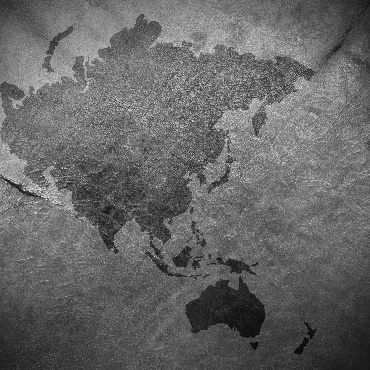ISIS HOLDS OUT IN THE MIDDLE EAST...
On December 10th, Iraq's government celebrated the one-year anniversary of its hard-fought victory against the Islamic State terrorist group. The festivities included the declaration of a national holiday and the observance of a moment of silence for the victims of the three-year struggle between Baghdad and the Islamist group, which claimed tens of thousands of lives and displaced hundreds of thousands of others. Speaking to military leaders, Iraqi Prime Minister Adel Abdul-Mahdi said the occasion commemorated a "proud day for all of us when our brave country defeated the enemies of life, dignity, freedom and peace."
But is the Islamic State truly defeated? The group has indeed suffered a catastrophic loss of territory since the height of its power in mid-2014. Yet pockets of ISIS territorial control remain - including in Syria's Deir al-Zour province, where ISIS forces have managed to maintain their control of the town of Hajin and its environs despite ongoing fighting with Syrian opposition forces and airstrikes on the part of the U.S.-led coalition. Moreover, the group is also said to be planning large-scale terrorist attacks against the West; security officials in the UK are on alert after intercepting "chatter" among ISIS operatives regarding the possibility of carrying out a large-scale attack on the London Underground using a chlorine bomb - a modus operandi said to be "inspired" by the recent poisoning of Russian ex-spy Sergei Skripal and his daughter, which is believed to have been carried out by the Russian government. (Associated Press, December 10, 2018; New York Times, December 9, 2018; London Sun, December 9, 2018)
...AND SETS ITS SIGHTS ON SOUTHWEST ASIA
ISIS is also showing signs of life in a comparatively new strategic arena: Southeast Asia. In the Philippines, for example, the September apprehension of a Pakistani ISIS trainer named Naeem Hussain seeking to enter the country for the second time raised worries among officials in Manila that the country could soon face a further surge in Islamic radicalism. Indeed, a recent spate of ISIS-linked attacks beyond the group's current stronghold in the southwestern Sulu Archipelago has lent credence to assessments of the group's growing strength in - and designs upon - the Southwest Asian nation. So, too, has the August 2018 ISIS announcement of the formal establishment of a new province, dubbed the East Asia Wilayah, which is headquartered in the Philippines.
Meanwhile, in Malaysia, authorities have arrested seven radicals suspected of plotting attacks against civilian targets. The suspects, five Malaysians and two Filipinos, were apprehended in Kelantan, Kajang, and Sabah, and are said to have links to the Islamic State and one of its premier regional affiliates, Abu Sayyaf. (SITE Insite blog, October 10, 2018; Singapore Straits Times, December 10, 2018)
THE BASIS FOR BRITISH INTERVENTION
Counterterrorism concerns are prompting the British government to take on a more active role in African security issues. British troops are now training local forces in Nigeria to expand the Nigerian government's capacity to address the threat posed by the Boko Haram Islamist group, which continues to operate despite Abuja's best efforts. The move, British officials say, is both logical and defensive. The regional activities of Islamist groups like ISIS and Boko Haram are "a potential and growing threat to the United Kingdom," British Defense Secretary Gavin Williamson said while visiting deployed troops in Nigeria's Borno state. "By dealing with the threat here in Nigeria, it keeps the streets of Britain safe as well." If threats like Boko Haram are "allowed to fester," Williamson warned, they could link up to create a caliphate across parts of Africa, from which attacks could be launched against the West. (Gwarinpa The Whistler, November 19, 2018)
Want these sent to your inbox?
Subscribe



